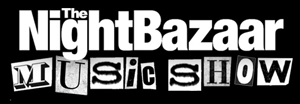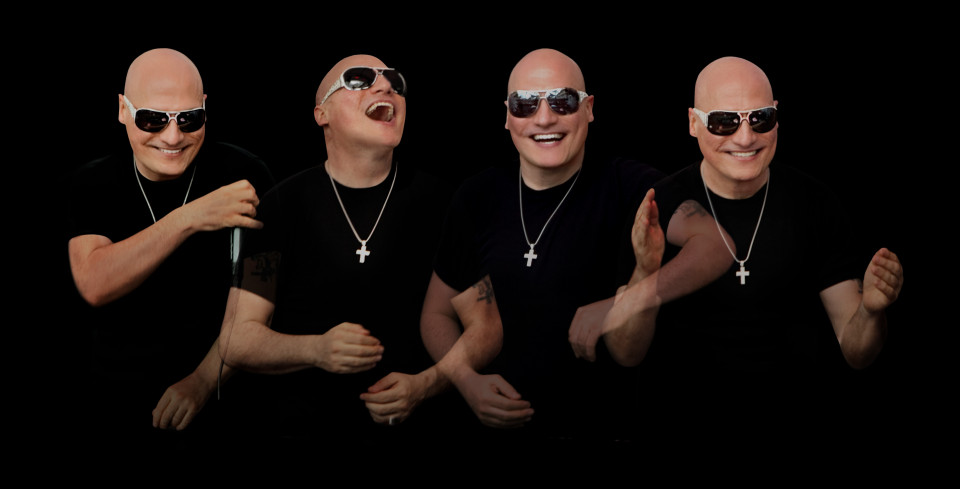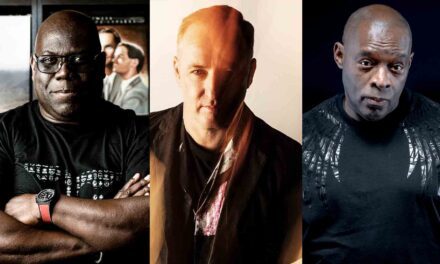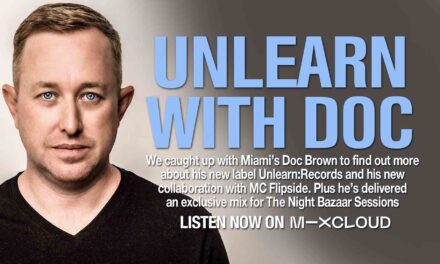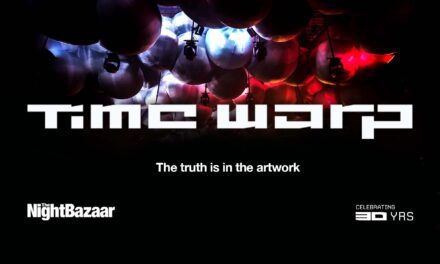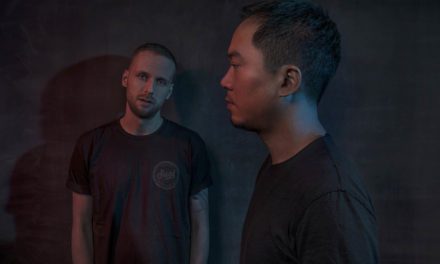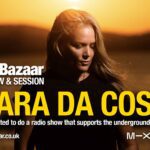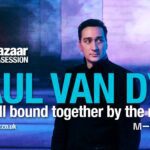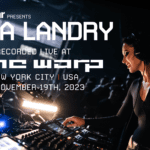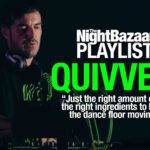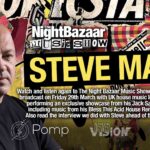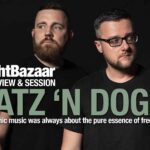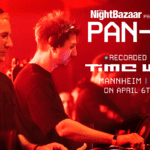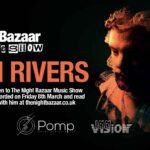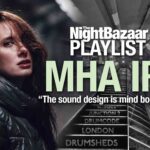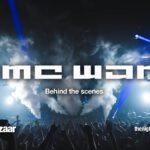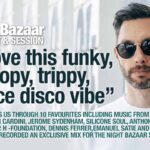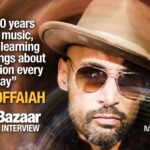DANNY Tenaglia’s life is music.
The ultimate DJ’s DJ, his enduring popularity and legendary status are based on his early experiences in New York hanging out at Paradise Garage dancing to the soundtrack of Larry Levan then taking the baton and leading the charge with a myriad of iconic tracks and remixes around legendary residencies in the Big Apple and Miami.
London has also played a big part in Danny’s career. He returned to the capital for the annual two day SW4 festival on Clapham Common alongside Sven Väth, Jamie Jones and Joseph Capriati on the Amnesia stage. We caught up with him to talk in depth about his inspirational journey spanning the last 3 decades and his views on the current dance music scene in association with SW4.
We are living in divisive times and Danny’s story underlines why this scene and the universal language that it promotes is such an important part of our culture not just in the UK but also around the world.
Hi Danny. How are you?
Pretty good, pretty good – I’m in Miami for the first time in about eight weeks. Just kicking back a little bit, but at the moment I’m pretty much based in New York.
So, can you tell us where it all started? What are your earliest musical memories, and when you realised you wanted to do this for your career?
Well it started back when I was in Brooklyn, where I was born, and that was in 1961. I came from a very musical family, not necessarily musicians and producers, but my mom was one of nine children – all married with kids and we used to have parties and some aunts and uncles would be playing accordions and guitars and harmonicas and singing. I was just a little boy – really, really young, about five, and just knowing that music got my attention so deeply, I used to receive all kinds of musical toys as a kid, y’know a little piano, whatever. It really started back then that I started to display at a very young age my attraction to and passion for music and equipment – speakers, instruments, anything that was related.
So, up until I was about eleven, twelve years old, I was already developing a taste for Motown, soul train, the Jacksons – I was already into that groovier kind of stuff. It was then, in about 1973 that I discovered DJs, thanks to an 8-track tape that a cousin of mine was playing, where he beat-matched. I was questioning it, thinking ‘how did he do that?’ and I started to understand that instead of a band, it was just a DJ that plays records. My eyes were opened, and I called the number that was on the tape, and the guy, that’s how it all started. He’s no longer a DJ, but I’m still in touch with him – it’s amazing – it’s been forty years, but I’m still in touch with the first DJ that I ever heard of. I called him up, and said “Hi – I’m Danny, my cousin Anthony is playing your tape – it’s cool, and I just saw your number and my cousin said “call the number”, and I thought ‘is this for real?’” He thought it was a joke, and was like “Where are you?” I said “at my grandmother’s deli in Brooklyn”, and he said “Where? – Stay there, I’m coming there to see you”.
So he came over to the store and he showed us a few more tapes, a few more 8-tracks and basically that was the beginning, I studied his tapes – I was too young to go out, so that was my introduction to DJ-ing and beat-matching. In answer to your question, it was pretty much right there and then – my dad had a wheel-to-wheel, so it was pretty much spinning records from there, and I knew ‘I want to do this’.
So then, from there, the next step was probably playing in front of people, right?
Right – I had my first opportunity at about the age of sixteen. I had just gotten brand new modern turntables and a mixer and I was hired to play at my brother’s prom, which is kind of funny, but I got through it!
As far as anything more legitimate, I started working in a pub in Brooklyn, with a funny name, called The Miami Lounge – I was pretty much chaperoned by my two older brothers, and it was a corner neighbourhood pub three blocks away, with a dance floor in the back that was initially designed so that live entertainers would have a place to perform, but then DJs and disco started to come through, and I was permitted to play from 9pm to 1am, then my brothers would get me back home. That’s where it took off for me – back when disco was starting to become a household style.
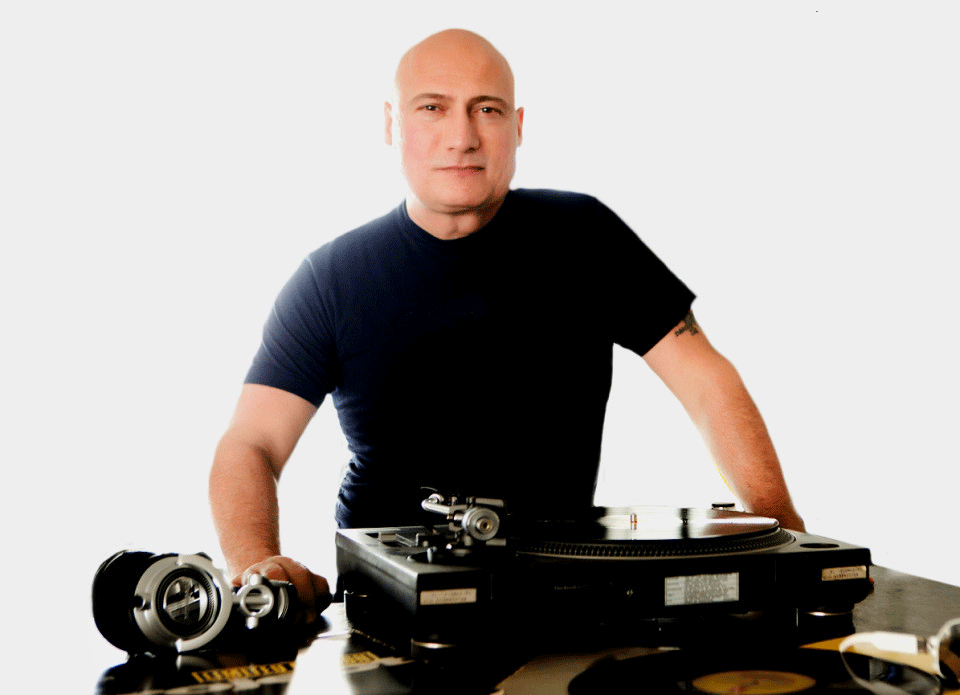

And then from there, I suppose the disco explosion happened, and the Paradise Garage was born?
Yes! Basically, I was still quite young, as Paradise Garage [beloved NYC nightclub] opened in 1977, and although I was getting to go out here and there, I didn’t make it there until – well, my membership card says 1981, but I think I went there for the first time in 1979. With regards to the disco explosion, I was still pretty much a young kid in Brooklyn, I wasn’t crossing the bridge to Manhattan yet, to the big Studio 54s, although I did once I turned eighteen.
The difference when I discovered the Garage as opposed to disco and all that was happening in New York and globally was that the Garage was now leaning more towards the soulful, while disco was becoming so commercialised, with all the flashy strings and the pianos – and of course a lot of disco stuff was played at the garage, but it was a lot more soulful, and kind of funkier, so I was much more attracted to that.
I started to go there and what I loved about the Garage was, well, to give you more specifics, I recall the first time I walked in there, the song that was playing was ‘Do You Wanna Get Funky with Me’ by Peter Brown and it was on TK Disco – which was the first ever 12” to go gold. It was a down-tempo kind of record, and it was about 1am, when the club was just getting started, as it opened at midnight, and was going to be a twelve-hour thing, from midnight until midday. I was one of the first people there and I heard the song and was looking at the sound system in this room and I was mesmerised – the lights were pretty much still on, with guys on ladders changing gels and stuff, and I thought ‘Holy S***!’ I was just standing by this big stack and I thought ‘this is it, this is what everybody’s been telling me about’.
Friends of mine knew that I’d been a teenage DJ for a couple of years, they knew my style, and said “You’ve got to go to Garage”, so I finally went and I finally got it. There was a no liquor policy, and it was all about the sound, sound systems and the music selection. That’s what really stood out for me, was the sound, the music, and the crowd’s participation in the songs. Back then it was really hard to mix records that were not tailor-made with drum machines, and everything was done on turntables that weren’t made for queuing back with records, so you had to lift the needle up to start over. A lot of the mixes were somewhat disastrous, but at the time, it was like ‘who cares!’ There were also often long periods where Larry [Levan – resident at Paradise Garage] stopped mixing, and he would just let a record end, and then start the next one. But we were used to the club by then, and all we cared about was the song he was gonna play – it made the club special.
So what was it about the club specifically and about Larry Levan that was so inspiring to you as a young man?
I think it’s the fact that there was nothing else going on like it anywhere in the world – there was no competition! It was a New York City Manhattan after-hours thing, there was nothing else like it. It was predominantly black DJs when it first started, in the disco era, and it maintained that for quite some time on Saturday nights, and then they opened on Fridays too. By the eighties, I guess everyone was starting to hear about the Garage – a lot of industry people were going, a lot of record label people – it was all about the Garage. It was for people who loved the more soulful side – if you wanted the more high-energy side, the more fluffy, Italo disco stuff, then the only place in town was a club called ‘The Saint’, which was predominantly white and gay, and non-alcohol also. Other than that though, Larry had no competition.
The impact that Larry made on me as a DJ, entertainer, artist, producer, all those things rolled into one really, was that he was working in a way that you could just feel what he was feeling – he was like a conductor. He knew how to work the volume, when to pull back, how to ‘boom!’ and make that impact. It was amazing to see and hear, and he could even get the crowd to sing vocals too –it was really strange, and it’s hard to describe, he could get people to sing the sound of anything, even a tambourine! Those were the little crescendos that today, people are just doing with a mixer, but back then, the records were doing them by themselves. Not everything was about thinking ‘Okay – when’s the breakdown coming’, it was also about what was in between as well, from start to finish. Then everything changed, but I related to that as someone who was born in the sixties, and started understanding music as a child from what my family was playing, whether it was Frank Sinatra or Sergio Mendes – I just absorbed everything, and I think I just possessed a quality to be a musician, but just didn’t follow through with that. I studied piano, but just wasn’t good at the discipline, I hated the lessons, and even though I was only ten or eleven, I told my parents “I just can’t do this”.
When was the first residency you had in the city that emulated what Larry had at the Garage?
For certain, that was when I started working at Vinyl, which was in 1999. That lasted for five years and a few months, and that club was the last of its kind – when that club closed in 2004, there was nothing like it. It was the only nightclub left that had a ‘no-liquor’ policy, had the four point stack system like the one that the Garage had.
I started doing parties in 1999, and even before Shelter [well-known New York club night], it was pretty legendary. But once Shelter took over, it was a non-liquor venue all about dance parties and basically a continuation of the Paradise Garage. The only other club that came along that did parties well and did them right was Sound Factory.
With both Vinyl and Sound Factory, what elements was it of both those venues that allowed for there to be a real focus on the music?
Well we were all inspired by Larry Levan and Paradise Garage, and the passion of the owner as well, Michael Brody and the staff – there was a unity and you felt it. It has to come from the top – the owner has to be so passionate about it, that you can feel it, and if the whole thing is only about making money, it doesn’t work. Movie stars, famous people, that wasn’t what clubs like Paradise Garage were all about.
At Vinyl, like at Paradise Garage, the sound was designed, with those stacks and the technology where you could cut off the bass, or the mids or the highs. Now we do that with filters, but back then, those three effects were all we had. It was all about the sound of the music.
By the nineties though, house music was starting to come through in New York, in London, and of course New Jersey had a big sound. Tony Humphries was a pioneer of so much of that, playing that, and that point is when I consider that all this was a continuation of the Garage, as a lot of other clubs were starting to get into Madonna-type records and all those pop artists and remixes – that was different from a more raw, underground Chicago/New Jersey vibe.
What are your views on the scene in America right now?
I’m so grateful that I was able to experience all that I have from the seventies up until now. I’ve now travelled around the world, to thirty-nine countries, and I don’t see how it could ever go back to being that way on a large scale, because of the cost – a club owner wanting to create an environment like the seventies would have to not worry about the cost, think like a DJ; it’s got to be because you love music that much and really want to watch people have a great time and listen to great music.
Now that all the festivals have started, now that clubs have gotten smaller, everything became more intimate and everything became so much more costly – to rent a nightclub that would hold two or three thousand people? Those days are gone – to try and accomplish that again, in Manhattan, would be unrealistic. To find club owners willing to, in effect, piss their money away to recreate the atmosphere of the Garage would be impossible. We now live in a future generation, and all the clubs like Palladium, The Saint, Paradise Garage, that would hold thousands of people are long gone. When Vinyl closed in 2004, nothing has come close – the no-liquor policy is gone, and then Mayor Giuliani decided that any business open late hours had to be by the West Side highway. They used to be all over town – everything started changing. Then came the rave mentality, where you had up to twenty DJs on a flyer, and that’s not the roots of what people like Tony Humphries and myself experienced. We just had to turn up, turn on the power, come back and everything was how you left it, and two, three, five nights a week, we had a residency – that was our job! The whole idea of playing with other DJs and sharing the evening came into play in the nineties, when some of us had already been DJ-ing for ten or twenty years. Everything’s changed and now here we are in the era of festivals, in the era of stages, main stages, tents!
How does that make you feel for the future of the music scene in the US?
I don’t think it’s slowing down, I think what has changed is the enormity of the venues and the old way that two thousand people used to show up to a venue. What hasn’t changed though is the passion for DJs, and what they have to offer. People still show up to see DJs like myself and other artists that come from abroad – it’s just not on a great scale because of the large venues.
If you do a festival, you now don’t get the main stage – that’s normally for people like David Guetta – main acts like Tiësto. It’s still there, and Brooklyn has taken over from Manhattan in terms of venues and parties – more underground unannounced parties and there has been a lot of hype around that.
You play a lot at Brooklyn’s Output, right? How does that compare?
Output is a great venue and the owner is one of the few that, as I was talking about earlier, thinks like a DJ. Nicolas Matar, owner of Cielo is another example – he also is a DJ though. He helped establish Output and thought a lot about the sound – a sound system is one thing but if you don’t put it in a good room, it ain’t gonna sound great! You have to treat the room with acoustic materials accordingly, and so Output kind of got a showcase kind of room. They promote a lot of new, underground DJs and I think ‘Oh who’s that? Who’s that?!’ because it’s so hard to keep up – but I know they’re not commercial, EDM-type DJs, they’re staying true to underground DJs. Output and Matar are definitely holding the torch for guys like me in New York, and I’m happy to be part of it. The cool thing about it is that Output happens to be just a couple of blocks away from where I was born and raised, and maybe four blocks away from The Miami Lounge where I started working at in 1975, forty-one years ago! That’s crazy. The happening club is right in my neighbourhood!
Going back to places with which you have a rich heritage and great history – one of those has got to be London. Can you remember the first time you came to the city, and which venue you played?
The first time I ever left America was in 1988 and it was not to DJ, but I wanted to visit nightclubs, and I went to the London club Heaven, and in the club behind Heaven, Paul Oakenfold was a DJ, and he was playing music that I was desperate to get to know, as I felt so in tune with what he was playing. That year, I remember coming back from England with loads of records I had bought (I stopped off at a bunch of record stores), and it made such a strong impact on me. I was always one of those DJs that read music magazines, but I could see that the Acid movement was coming through, and I finally got to witness it! The first time I came to play in England wasn’t until about 1994, and I think I played Ministry of Sound…
Ministry Of Sound bears many similarities to The Paradise Garage, right?
Totally – it was everything that I had heard it was – it was Paradise Garage, Larry Levan. When you’re in the DJ booth of Ministry of Sound, it almost feels like a replica of Vinyl, where I used to play. I think what they accomplished was the minimal, raw feeling, without loads of flashing lights and the modern stuff – the focus was on the sound. When I recently played there, I was hit with déjà vu.
And after Ministry you started playing at Home in London, do you remember your days there?
Thinking back twenty years, I played other cities like Brighton, Manchester, but Home came later, I don’t remember how many years after Ministry that was. What I can remember though, is when Home and Global Underground did a float for the ‘Love Parade’ in Berlin in the year 2000 I was part of that.
I do remember that Home was great, it was a cool club – kinda narrow, but several floors, and I believe it was there that I met Steve Lawler and we played together.
Do you see any similarities between London and New York? If so, what kind of similarities have you yourself noticed?
I think New York and London have always inspired each other, and even though when I travel between the two countries, I’m always excited to experience Britain and ‘Britishness’, when you get in that DJ booth, in a nightclub, it doesn’t feel very different. London starts to feel only as far away from New York as New Jersey is – as if we were educated on what the other city was doing, so we’ve stayed in sync.
It’s hard to describe, but the clubs in London are always so intimate, and at the end of the night, people ask for just ‘one more track!’, which you don’t get so much in New York, as by that point, you’ve been playing for so many hours that there’s not that many people left. I think it was in London that I first got the vibe that the crowd was really interested in what the DJ was doing, and that the culture had a good attitude towards DJs.
The UK made a big impact on me, as well as your magazines like Mixmag and the guys that would come from there – I would study their CDs, their compilations, get to work with them. They’ve all opened my mind, as I started out as more of a soulful, deep house garage-type DJ, but now I’m hearing guys like Carl Cox playing tech-house which I was aware of, but now made a big impact on me. As DJs, we appreciate more than just one style, and coming to England, as well as Ibiza was when I started to really hear all kinds of DJs, often all in the space of one week! It’s not just about the DJ, it’s about the crowd’s participation as well, and I learnt that and really grew from that.
One of your most famous pieces of work was your second Global Underground compilation, which you chose to base on your experiences of playing in London. Why did you choose London as your inspiration, and what was it about playing in London that you wanted to express in your mix?
It wasn’t totally my idea, and I really can’t say exactly at what point that compilation (which was meant to be about me touring to other locations), became about London, but it was at the right time and the right place.
All the compilations that I make are a reflection of how I feel in the moment and also trying to give a reflection of my heart and soul. You also always want to take into consideration artists that you think could use the hype, and who have inspired you. It’s so hard to make compilations – picking out all the songs, finding out which ones can be approved, being disappointed about which ones can’t. I have really strong memories about playing with Carl Cox in London and sweat dripping from the walls – it’s all about moments, not about the money or anything else, and to me it’s like I’m in the same frame of mind as everyone on the dance floor – even now I’m 55 years old!
Another place in Europe that you’re really associated with is Ibiza, so let’s talk about the final season of Space…
The first time I went there was in 2000 and that was to play at Space and it went really well! I’ve been back every year since. I was there last week and though it’s not what it used to be, it has been such an amazing experience. Space is the expression of what going to Ibiza is like – Space is ‘the place’ – it really lived up to its expectations, and I’m glad I got to see and hear everything before it all changed. Lots of old-timers don’t attend anymore, but that’s what happens with nightlife, and you just have to continue doing what you do. I got to meet and play with so many talented DJs, and it means a lot. I prefer playing the Terrace, but I like both there and the Main Room, and I’ve got to say thank you to Space for having me back to play so many times! The owner, who’s a seventy-something year-old man came up into the booth, with his hands in the air, and that was great – you don’t see that often.
What impact do you think the loss of Space will have on Ibiza?
I think everything is changing, so many new artists are coming through, new styles, I think Ibiza has become less festive as the years progress. Everything started becoming about the DJs, about festivals, about private jets, social media, phones, cameras. Places like Ushuaïa came along, and they catered more to the jet-setting DJs and they’ve made a negative impact on guys like myself and my whole generation – as it’s more commercial, more pop, all about the bells and whistles, which isn’t what it used to be about.
Do you think then, that these days, there is too much of a focus on visual production in big dance music shows – an almost choreographed approach? Does the younger generation expect too much from a live performance?
Totally. It’s totally being sold as a concert – nothing short of going to Madison Square Garden, or any indoor Pink Floyd concert with all the visuals. They can do whatever they want of course, but they would still get an enormous turnout without these visuals and screens behind them.
The people behind commercialised DJs, EDM artists, and people like Deadmau5 (no disrespect intended, of course – new artists are young and doing their own thing), are making everything kind of more ‘money, money, money’, getting billboards, multi-million dollar deals, and it’s not the direction that I ever see myself going down. I understand the nature of promotion and social media, but these days it’s not so much about talent – you can now buy yourself a career! I don’t know what the future holds from places like Ushuaïa and Space, but I don’t know how it will ever be the same – it’s going to be touristic and commercial. I don’t know how many of the people that will be visiting Ibiza venues like Amnesia will be as intellectually interested in the music, like they are in London.
At the same time though, I’m sure that there are some young producers and DJs who’ve impressed you?
Sure, but not on a large scale, more so in the smaller, more intimate kind of clubs. That’s a hard question though! As a DJ, there’s so many DJs in the industry these days, but I do still get stimulated by new acts, as I’m sitting here right now, my mind is racing thinking about who’s impressing me! A guy that’s been around for a while, Santos, an Italian guy – I like his work, as well as this Spanish guy, Ramiro Lopez, I like a lot of Ben Klock and Marcel, Berghain type people.
One guy that you’ll be playing on the same stage as at SW4, and who’s getting a lot of hype in both London and New York is Joseph Capriati.
Yeah – he’s definitely more of a techno DJ, playing at SW4 with Jamie Jones right? I’ve played with Joseph before, but never Jamie, but I’m honoured he’s asked me to be a guest of his at DC-10 in Ibiza. I hosted Joseph at Output, it was his first gig in New York. I think it gave him a little boost – he was really appreciative. I’m not from Italy, but my background is, and I’ve got a history with Napoli where Joseph is from. I’ve never shared a stage with Sven Väth either [who is also playing the Amnesia arena at SW4], so I’m looking forward to that. I’ve met him a few times over the years though, in hotel lobbies mainly!
What are you looking forward to about coming back to London and playing SW4 again?
Coming back to London is always an honour, because it’s been so many years now, and it gets better every time. People and audiences have so much knowledge – knowledge at their fingertips – everything is on YouTube, so you can find out about DJs and their backgrounds, so the people that will be coming and standing in front of you have come to see you for a reason!
I still get extremely nervous before every gig – it’s a good kind of nervous, but you wouldn’t believe how nervous, no matter how big or small! You want to give a good show, to make people happy, to have no technical mishaps – you want it to go smooth, and at the end, thank each other! I never want to disappoint people.
At SW4, will you make the time to see other people play? The line-up features artists that you have long relationships with, such as John Digweed and Nicole Moudaber.
So long as I don’t have to leave to travel somewhere else, by all means I’m gonna stay and enjoy myself – say hello to all my peers. You never stop learning, as every DJ is so different from another; I’m looking forward to absorbing as much music as I can. New music fuels us DJs, and you don’t get to hear that other than at places like SW4! I plan on making the most of it!
So that brings me onto my final question Danny, is music truly ‘the answer’?
Haha – I like that question! I think that this conversation has proved that music has pretty much been my life, and has been the answer to a lot of problems, but I’d say that love is the message. If you don’t love what you do, love yourself and love each other, then you ain’t gonna enjoy the music! ‘Music is the answer and love is the message’ – that’s pretty much my mantra.


